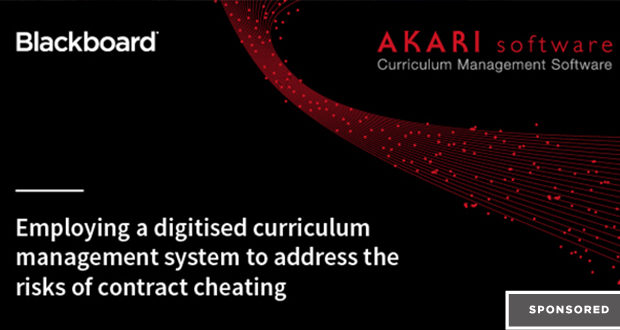To date, a tremendous amount of technological and policy development has been directed toward curbing the use of online “paper mills” or websites where students can purchase essays written for them, but the issue remains problematic and largely unresolved.
In response to the potential for the degradation of the value of university degrees resulting from the use of “paper mills” and contract cheating, higher education regulatory agencies such as TEQSA are taking a number of steps to eliminate students’ use of these services. These steps include attempts to block access to sites selling papers as well as requiring universities to provide detailed information relating to academic integrity challenges in the form of “risk registers” to be submitted annually.
Primary to these initiatives is a keen focus on the role of assessment type in enabling students to use these contracted services. While rarely reflecting a task that will enable students to succeed in their future careers, many academics see the in-text referenced essay as a necessity in students’ university educations. We know that the vast majority of “contract cheating” incidents relate to the submission of these traditional assignments.
Having previously directed a student academic support unit, I can guarantee that there is a formula to writing this style of essay, and this is based primarily on the standard rubric that accompanies the assignment. Students can be taught the formula but, unfortunately, the formula is also employed by thousands of contract cheating websites and organisations.
While the use and value of authentic, effective written communication will not stop with graduation, the necessity for the use of this standard essay formula does. Even for those graduates employed in positions requiring extensive writing, there will be a distinctive formula for their writing that does not look like the in-text referenced academic essay
I would suggest that typical generic, traditional academic essay assignments that carry a high percentage weight of the course grade would be the most prone to contract cheating. It doesn’t take a lot of work for instructors to convert these generic assignments into authentic, location/university/employer-based assignments that are so personalised as to make it almost impossible to provide via contract cheating warehouses. With the proper reformatting, having these assignments completed by someone other than the student would be time consuming and often prohibitively expensive. This is not to deny increasing the sophistication of cheating warehouses, but at present, standard essays are the primary goods on offer.
The answer is simple – but it’s a difficult pill for some academics to swallow. If we no longer require students to write these non-authentic (read this as not valuable to real world work) essays as their primary form of evidencing their achievement of learning outcomes, we would render many contract cheating firms unnecessary. At the very least we would send them scrambling back to reinvent their offers.
One way to address this issue is to consider how our curriculum management strategies (whether digitised, manual, or a combination of both) can contribute to the mediation of risk for academic dishonesty through contract cheating. This can be accomplished through a careful audit of the assessment types used in each course/unit of study and its corresponding contribution to assessment of course and program learning outcomes and overall graduate attributes. It is also essential that an analysis be performed relating to the percentage of final grade that is determined by each assessment type – both to assure that the risk of academic dishonesty is minimised and to assure that the achievement of learning outcomes is measured by a variety of means.
A digitised curriculum management system can allow the whole of a university’s curriculum to be examined for trends and pockets where students may be over-assessed with traditional assessment forms such as essays and high-stakes exams. This is a straightforward reporting function from a curriculum management system, but a lengthy and hit-and-miss task if conducted through completely manual processes on a course-by-course or even school-by-school basis.
A digitised curriculum management system therefore can provide crucial assistance in identifying those courses or programs that place a university at high risk for contract cheating. Academics and administrators alike will have instant access to data relating to the risk from non-authentic, traditional assessment tasks. The examination of constructive alignment between course and program assessment tools and learning outcomes can be automated with digitised curriculum management systems, revealing critical data not only to mitigate the risks related to contract cheating, but also to provide objective insights that will enable continuous course improvement.
Given these benefits, it is curious that digitised curriculum management systems appear to be the “last frontier” in academic technologies. Their time has come.
For more information, go to blackboard.com/akari.
Email [email protected]
 Campus Review The latest in higher education news
Campus Review The latest in higher education news




